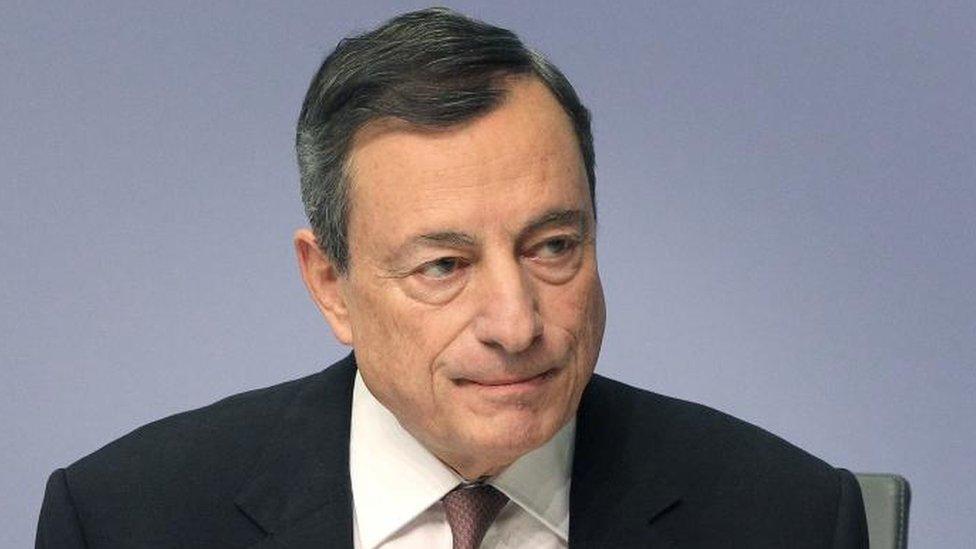Eurozone economy to grow at faster rate, says central bank
- Published

ECB president Mario Draghi said inflationary pressures remained "muted"
The European Central Bank (ECB) has lifted its economic growth forecasts as growth across the eurozone picks up.
It now expects the eurozone's economy to grow 2.4% this year, ahead of its previous guidance of 2.2%.
The bank also kept its main interest rate at zero and confirmed its asset purchase programme would drop from ÔéČ60bn to ÔéČ30bn a month in January.
ECB president Mario Draghi said: "We are certainly more confident today than we were two months ago."
Pressure on the ECB to tighten policy has been growing as the eurozone economy has gathered strength.
The bank also raised its GDP growth forecast for next year to 2.3% from 1.8%, and for 2019 to 1.9% from 1.7%.
The ECB slightly lifted its inflation expectation for next year but its guidance remains below its target of close to, but below, 2%.
Mr Draghi said: "Domestic price pressures remain muted overall and have yet to show convincing signs of a sustained upward trend."
Claus Vistesen, chief eurozone economist at Pantheon Macroeconomics, said: "The ECB is much more optimistic on the economy, but not on inflation.
"We think growth will slow slightly next year, but that inflation will continue to edge higher. Even if the take the ECB by its word, however, a 0.5 percentage point upgrade to the 2018 GDP outlook with only a small bump in the inflation forecast increases the risk that the central bank will err on the side of complacency."
The revival in the eurozone's fortunes was underlined by a closely-watched survey published earlier on Thursday, which indicated that businesses in the 19-nation bloc have been enjoying strong growth this month.
The latest hit 58, its highest reading since February 2011. A figure above 50 indicates growth.
"It's a solid picture of broad-based expansion," said Chris Williamson, chief business economist at IHS Markit.
- Published13 December 2017
- Published15 November 2017
- Published26 October 2017
- Published7 September 2017